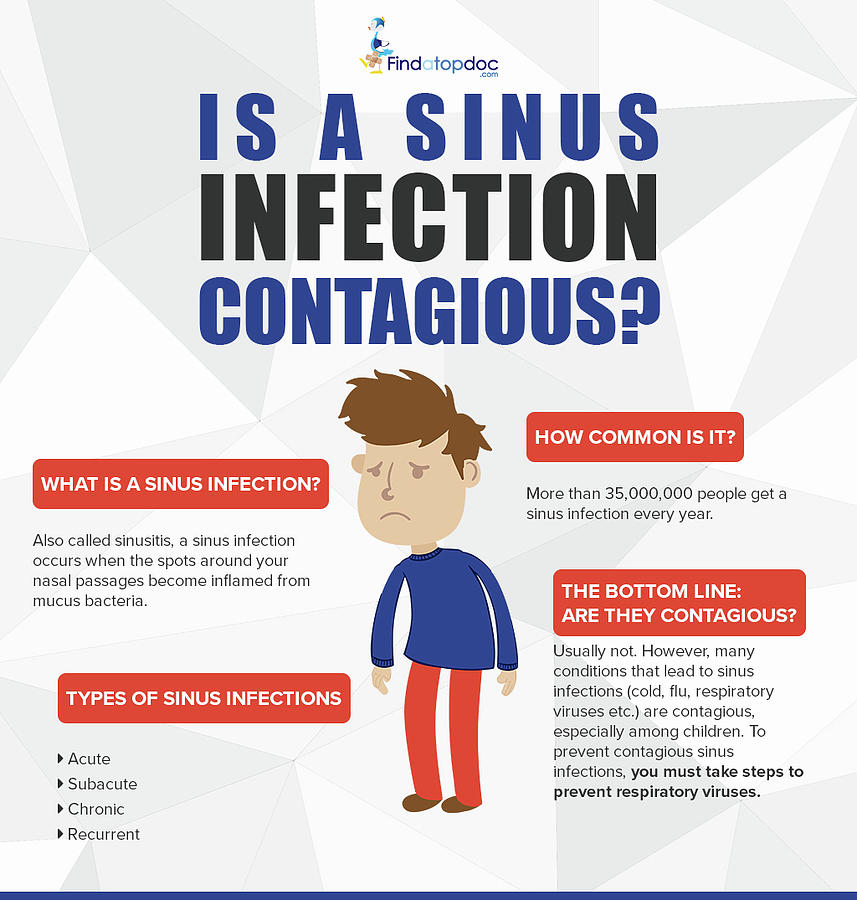Sinus infections, also known as sinusitis, are a common ailment that affects millions of people worldwide. Often characterized by symptoms such as nasal congestion, facial pain, and a runny nose, sinus infections can be quite uncomfortable. One of the most frequently asked questions about sinus infections is whether they are contagious. In this article, we will delve into the nature of sinus infections, explore their causes, and determine if they can be spread from person to person.
Key Takeaways
- Sinus infections can be caused by viruses, bacteria, or fungi.
- Viral sinus infections are contagious; bacterial and fungal infections are not.
- Good hygiene practices can help prevent the spread of viral sinus infections.
- Understanding the symptoms and treatment options can aid in managing sinus infections effectively.
What is a Sinus Infection?
A sinus infection occurs when the tissue lining the sinuses becomes inflamed or swollen. The sinuses are air-filled spaces located behind the forehead, nose, cheekbones, and eyes. When they become blocked and filled with fluid, germs can grow and cause an infection.
Types of Sinus Infections
There are several types of sinus infections, categorized based on their duration and cause:

- Acute Sinusitis: This type lasts for a short period, typically less than four weeks, and is often triggered by a cold.
- Subacute Sinusitis: Lasting between four to twelve weeks, this type often follows an acute infection.
- Chronic Sinusitis: This type persists for more than twelve weeks, despite treatment attempts.
- Recurrent Sinusitis: Occurs several times a year, with each episode lasting less than four weeks.
Causes of Sinus Infections

Sinus infections can be caused by various factors, including:
- Viruses: The most common cause of sinus infections, often following a cold.
- Bacteria: A bacterial infection can develop if a viral sinus infection does not improve after 10 days.
- Fungi: More common in individuals with weakened immune systems or those with chronic sinusitis.
- Allergies: Allergic reactions can lead to inflammation and blockage of the sinuses.
- Nasal Polyps: Growths in the nasal passage that can block the sinuses.
- Deviated Septum: A misalignment of the nasal septum can restrict or block sinus passages.
Is a Sinus Infection Contagious?
The contagious nature of a sinus infection depends largely on its cause:

Viral Sinus Infections
Viral sinus infections are contagious. They are often a result of a common cold virus, which can be easily spread through droplets in the air when an infected person coughs or sneezes. Direct contact with contaminated surfaces can also lead to transmission. It is important to practice good hygiene, such as frequent hand washing and covering your mouth when coughing or sneezing, to prevent the spread of viral infections.
Bacterial and Fungal Sinus Infections
Bacterial and fungal sinus infections are generally not contagious. These infections occur when bacteria or fungi grow in the sinuses, often as a secondary infection following a viral sinusitis. While the infection itself is not contagious, the initial viral infection could have been.
Symptoms of a Sinus Infection
Recognizing the symptoms of a sinus infection can help in seeking timely treatment. Common symptoms include:
- Nasal congestion and discharge
- Facial pain or pressure, particularly around the eyes and forehead
- Headache
- Loss of smell
- Cough or throat irritation
- Fever
- Bad breath
- Fatigue
Preventing Sinus Infections
While not all sinus infections can be prevented, certain measures can reduce the risk:
- Practice Good Hygiene: Regular hand washing and avoiding close contact with sick individuals can help prevent viral infections.
- Manage Allergies: Keeping allergies under control with medications or avoiding allergens can prevent sinus blockages.
- Stay Hydrated: Drinking plenty of fluids can help thin mucus and promote drainage.
- Use a Humidifier: Adding moisture to the air can prevent dry nasal passages.
- Avoid Smoking: Tobacco smoke can irritate the sinuses and contribute to infection.
Treatment Options for Sinus Infections

Treatment for sinus infections varies based on the cause and severity of the symptoms:
Home Remedies
- Rest and hydration
- Warm compresses to relieve facial pain
- Saline nasal sprays to rinse the nasal passages
- Steam inhalation to ease congestion
Medical Treatments

- Decongestants: Over-the-counter medications can reduce nasal congestion.
- Antihistamines: Useful for sinus infections caused by allergies.
- Antibiotics: Prescribed for bacterial sinus infections.
- Corticosteroids: Nasal sprays to reduce inflammation.
- Surgery: In chronic cases, surgery may be necessary to remove blockages or correct structural issues.
whether a sinus infection is contagious depends on its underlying cause. Viral sinus infections are indeed contagious and can spread easily, whereas bacterial and fungal infections are not. Understanding the nature of your sinus infection is crucial for effective treatment and prevention. By practicing good hygiene and managing underlying conditions, you can reduce your risk of contracting or spreading a sinus infection. If you experience persistent or severe symptoms, consulting a healthcare professional is recommended for accurate diagnosis and appropriate treatment.